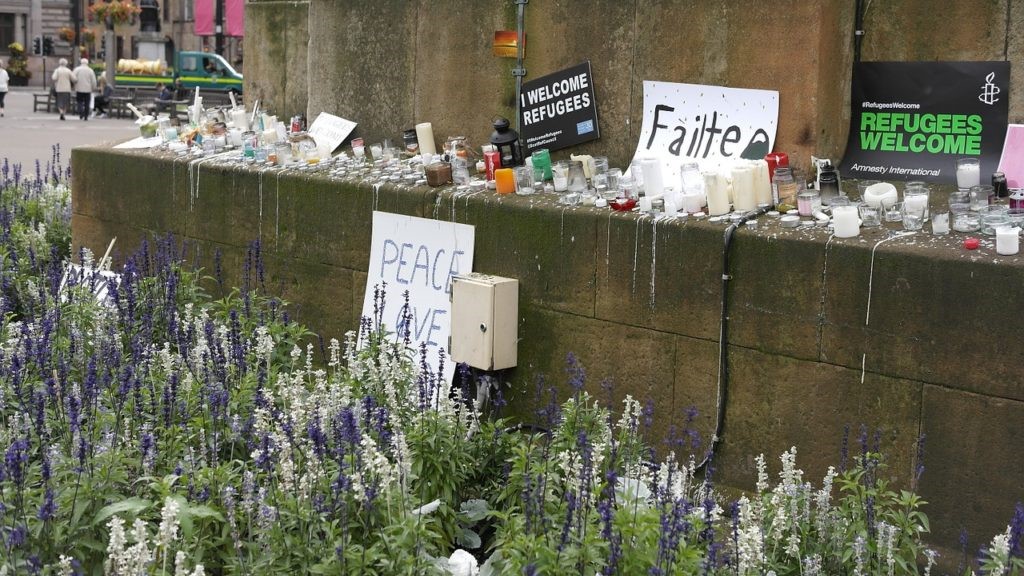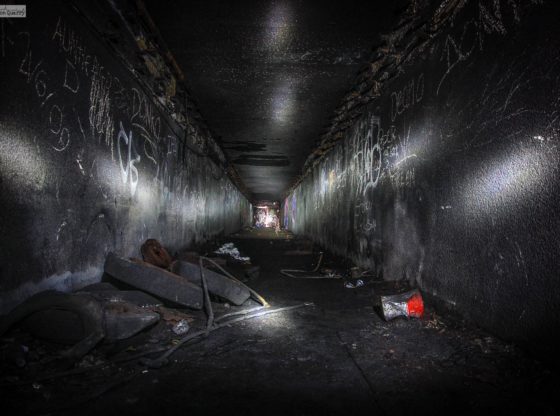Immigration dominated the debate during the UK’s 2016 European Union referendum. In this article, Pauline Diamond Salim of the Scottish Refugee Council details how the referendum impacted their work, and highlights various concerns over what the Brexit vote may mean for refugee rights.
In the run-up to the 2014 independence referendum, Scottish Refugee Council ran a programme of events for people from the refugee community in Glasgow. Designed to encourage discussion and participation in the political process, these sessions provided a forum for people to talk about issues around constitutional change and what the prospect of life in an independent Scotland, or remaining within the UK, might mean for them.
For some people, these discussions, along with the wider atmosphere of political debate surrounding the 2014 campaign, were surprisingly uninhibited and frank. We found that few people were used to sharing their political views in such an open forum - but many were hungry to do so. Of course, a good number of people from refugee backgrounds in Scotland are here because of violent restrictions on freedom of speech in their home country, so to some, the atmosphere of forthright political engagement in Scotland that summer was unfamiliar. Others were wary of elections, which they regarded with suspicion. Despite this, our workshop sessions filled up, week after week. People wanted to talk and we wanted to listen.
Using the referendum as a stimulus for debate and engagement allowed people from refugee backgrounds to participate in the most important national conversation of the day. No matter how recently resident in Scotland, the refugee community was invited to engage in the debate as New Scots, with important and unique insights to contribute. This act of engagement mirrors the ambition of wider refugee policy in Scotland, which aims to support and foster integration from the very first day people arrive here.
No matter how recently resident in Scotland, the refugee community was invited to engage in the debate as New Scots, with important and unique insights to contribute.
While a majority of the community we canvassed showed support for Scottish independence, many others feared the consequences of separation from the rest of the UK. But the outcome of the referendum itself was in many ways secondary to the act of participation in the debate.
Only a very small percentage of refugees were eligible to vote in the 2014 referendum, and certainly none of those still waiting for a decision on their claim for asylum were eligible. Yet more than 200 people joined our political engagement events that summer. Several gave interviews to the Scottish media about what the referendum meant to them, and about how political change would make a difference to their lives. For a moment, it felt as though mainstream Scotland was listening to refugees’ views and, to some extent, understanding that political decisions in Scotland affect all of us living here, regardless of background or immigration status.
THE EU REFERENDUM: A VERY DIFFERENT ATMOSPHERE
By the time of the European Union (EU) referendum two years later, there was little comparable public appetite in Scotland for town hall meetings or debate around the political implications of leaving or remaining in the EU. I don’t remember any significant conversations about the EU referendum with members of Scotland’s the refugee community. What none of us working in the sector will forget, though, is the racially-charged tone that characterised the Leave campaign - in particular, the scapegoating of people seeking refugee protection.
One consequence of the campaign’s xenophobia for us at Scottish Refugee Council was that it forced us to temporarily redirect our energy away from the more progressive work around political engagement that we delivered in 2014. Instead of using the EU referendum as a fresh stimulus to support and encourage people’s political engagement and active citizenship, we spent our time speaking out in defence of the fundamental right to seek refugee protection and against the stigmatising of our friends and colleagues.
The hostility of the campaign forced members of the refugee community into an even tighter corner. How do you engage in a national political debate when you see and hear representations of your personal experience of forced migration framed as something the nation should reject and despise? Many voices were silenced by and during the Brexit campaign.
How do you engage in a national political debate when you see and hear representations of your personal experience of forced migration framed as something the nation should reject and despise?
The challenge now is to ensure that there are no regressions in refugee rights as a consequence both of UK’s withdrawal from the EU and of the legitimising of racist, anti-migrant rhetoric in mainstream political and public debate. We need to find a way to bring refugee voices back into the debate about issues that will have a major impact on all of our lives.
Brexit itself now presents a potentially grave threat to everyone’s rights in the UK, including refugee rights. It is likely that Brexit will reduce the sources and safeguards of rights for refugees and people seeking asylum in the UK. For example, the rights set out in the EU Procedures and Reception Conditions Directive secure the right to a number of entitlements that affect people’s daily lives without which the potential for successful and meaningful integration will be jeopardised. These rights include, but are not limited to, the right to receive information in one’s own language, the right to an interpreter when required, and the right to basic living standards.
The Directive sets out the minimum standards of reception conditions for people seeking refugee protection across the EU. These minimum standards are nothing to aspire to but without that legal baseline in place, a UK government overtly hostile to people seeking refugee protection could establish even less hospitable conditions for people seeking sanctuary here. The Directive also includes special provisions for children and people who have experienced torture. It sets out the state’s duty to assess refugees’ health and well-being in order to identify, and work to support, people who may have experienced torture, been trafficked for exploitation, or experienced other serious violations.
The UK government’s proposed Repeal Bill also raises concerns. Will Brexit receive proper scrutiny in the UK parliament or by the devolved parliaments to guarantee rights in matters within their competence? Brexit may lead to democratic instability for devolved institutions and consequent uncertainty and risk around the maintenance of rights in devolved areas such as health and education.
At Scottish Refugee Council, we have recently begun a new process of consulting the refugee community about the potential implications of Brexit. We need the insights and energy of the New Scots we live and work among to help identify and challenge the potential threats to all our rights here in Scotland.
Scotland has led the way on positive initiatives that have had European-wide impact such as the national integration strategy and guardianship for unaccompanied refugee children.
Over the next twelve months, we will work closely with the refugee community, the Human Rights Consortium in Scotland, and the Scottish Universities Legal Network on Europe: all are supporting capacity-building with civil society organisations in Scotland on Brexit and its implications. Our aim is to set out red lines for the UK government on asylum and Brexit, and to consider what rights can be safeguarded here in Scotland.
Scotland has led the way on positive initiatives that have had European-wide impact such as the national integration strategy and guardianship for unaccompanied refugee children. It is imperative that rights are not lost through the Brexit process. And it is imperative that refugees - our neighbours, friends, colleagues - have a say in this major event that will so profoundly affect us all.
Pauline Diamond Salim is acting Media Manager at the Scottish Refugee Council: [email protected]. The Scottish Refugee Council is an independent human rights charity dedicated to supporting refugees in Scotland and campaigning for a fair and humane asylum system in the UK. They are on Twitter at: @ScotRefCouncil
Feature image: Refugees are given a welcome in Glasgow’s George Square. Image: Richgold [CC0]


